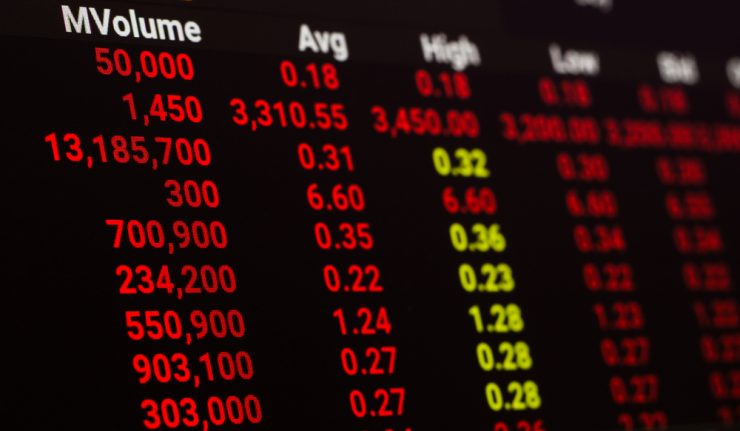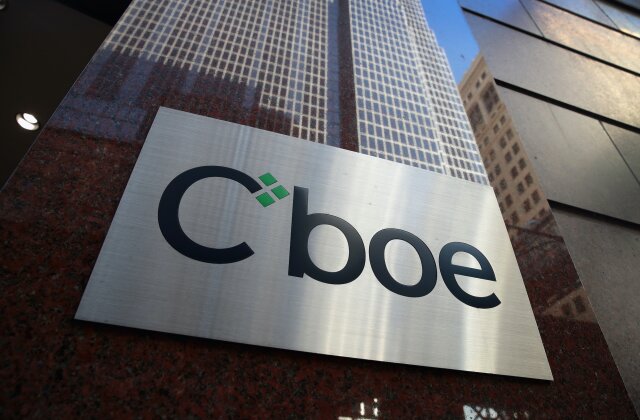Definition of The CBOE Volatility Index
Nov 27, 2023 By Triston Martin
The VIX index has been around since 1993 and was developed by CBOE Global Markets. It measures how volatile the stock market in the United States is now and how volatile it is anticipated to be short. It is extensively used all around the globe as a measure of the volatility of stock markets, with higher values in the VIX suggesting a greater degree of volatility.
The VIX is an index that measures volatility by following the performance of a basket of assets, much like other indexes, which monitor the performance of a group of stocks or other securities. The VIX follows the performance of the call and puts options on the S&P 500 with expiry dates of 30 days in the future from the present date. The algorithm used to calculate the VIX is quite involved and complicated. In a nutshell, an increase in the demand for put options will cause an increase in the VIX since it indicates that investors anticipate an increase in volatility in the future.
CBOE Volatility Index (VIX): What Is It and How Does It Work?
The fluctuations in the price of options on the S&P 500 are used to calculate the CBOE Volatility Index, which is then used to monitor the predicted volatility of the stock market. The VIX is calculated using a convoluted formula, and it goes up when it is anticipated that the stock market will go up. It goes down when it is anticipated that volatility will go down. The VIX may be used as the basis for trading derivatives, which can be beneficial to investors for various reasons.
For instance, if investors think that the stock market will be more volatile, they may purchase VIX futures to buy the VIX at a higher price than its present price. This is because the futures market anticipates that the stock market will be more volatile. Likewise, if they anticipate that volatility will decrease, they may utilize derivatives to benefit from that situation by making appropriate investments.
When it comes to hedging their portfolios, investors often turn to the VIX. Historically, the association between the VIX and the stock market's success has been negative. This indicates that the VIX will, on average, increase when the market is falling and decrease when the market is increasing. If investors want to protect themselves against market volatility using the VIX, they may purchase call options or sell put options against the VIX. If the market continues to fall, the VIX will almost certainly increase. This will allow the investor to profit from the options and recover part of the money they lost on their investments.

Is It Necessary for Me to Use the CBOE Volatility Index (VIX)?
The VIX is a one-of-a-kind index that provides investors access to investing techniques that would otherwise be difficult to implement using other methods. The VIX provides a mechanism for you to benefit from your forecast of a rise in market volatility and investor anxiety if you are convinced that these factors will continue to evolve. Without employing stocks or derivatives dependent on the VIX, it might be difficult to invest in a manner that will help you generate a profit from volatility. This can be a challenge.
Other investors use the VIX as a measurement of investor anxiety as well as an indication of the success of future stocks. A rising pattern in the VIX often indicates that investors are becoming more fearful, which may indicate future stock price declines. You may use the VIX index as a valuable indication for other transactions even if you don't become engaged in securities and derivatives dependent on it.
What It Implies for Those Who Invest on Their Own
The VIX has a variety of applications for individual investors. The easiest method is to use it as a signal for future changes in the market. You may be able to forecast future increases and decreases in the market as a whole based on changes in the VIX. This is possible since the VIX tends to mirror investor mood.
VIX Futures

When compared to stock trading, derivatives trading is typically seen as having a higher level of risk; nevertheless, VIX futures are known to be subject to a unique risk known as contango. When there is a contango, the prices of futures contracts based on the VIX tend to be higher than those of shorter-term contracts or the present VIX. If adding the VIX to your portfolio is one of your financial objectives, you will eventually be forced to purchase additional pricey futures contracts when the ones you already have in your portfolio reach their expiration dates.

Oct 16, 2023
Know-how
A Self-Employed 401(k) Plan
The accounts are typically established by the employer and funded by the employee. Generally, you can withdraw your 401(k) earnings tax-free after you reach the age of 59 1/2, as per IRS regulations in effect as of 20095..

Feb 09, 2024
Mortgages
How Do Conventional Mortgages and Loans Work
To sum up, a conventional loan is not backed by the federal government. It is instead made available and guaranteed by commercial companies. Banks, credit unions, and internet lenders are just some of the many sources for conventional loans, which are used for both home purchases and refinances

Oct 29, 2024
Know-how
Enterprise Value: The Complete Guide to Comparing Companies Financially
How to use Enterprise Value (EV) to compare companies more effectively, providing a more complete picture than market capitalization by including debt and cash in the analysis

Nov 26, 2023
Know-how
Is It Possible to Use One Credit Card to Pay Off Another?
Curious about paying off your credit card with another? Dive into the ins and outs, consider the factors before making a move, and learn how to manage debt with simplicity.

Jan 26, 2024
Know-how
Unlocking Financial Stability with Edelman Financial Engines
With 35 years of experience and a team of experienced financial advisors, Edelman Financial Engines offers personalized financial planning and investment management solutions to help you achieve your goals. Explore their cutting-edge technology tools and resources for comprehensive insights and strategies.

Nov 06, 2023
Mortgages
How to Consolidate and Refinance Your Student Loans: What You Need To Know
Replacing numerous student loans, whether federal, private, or a combination of the two, with a single, fresh personal loan is known as refinancing or consolidating private student loans. If the interest rate on your new loan is lower, you'll save money. Your new interest rate will be determined by your financial history, including your credit score, income, employment, and educational background. Rates typically range from 2% to more than 9%, and you usually need a credit score of at least in the high 600s to qualify

Nov 27, 2023
Investment
Definition of The CBOE Volatility Index
The CBOE Volatility Index is an index that was developed to track the volatility of the stock market in the United States. Through the use of call and put options, its specific objective is to monitor the anticipated volatility of the S and P 500.

Feb 19, 2024
Know-how
How Voluntary Repossession Works: Explain in Detail
If you're having trouble making auto payments and the lender is about to repossess your vehicle, you can voluntarily surrender it. Although your credit will still take a blow, it might be less severe than in the case of an involuntary repossession, and you might even be able to avoid some of the expenses that would otherwise be incurred.

Dec 30, 2023
Investment
Top 5 Silver ETFs
Silver ETFs are more liquid than the precious metal itself and track its price very closely. Investors who want to protect their wealth from inflation or find a sanctuary when the market is volatile often choose silver as their precious metal of choice.

Oct 18, 2023
Mortgages
Autopay Auto Buyout, Refinance, and Purchase Loans
It can be a difficult financial strain to deal with medical expenditures. This is why several major financial institutions and insurance providers (such as GE Capital, JPMorgan Chase, Citigroup, Capital One, UnitedHealth Group, and Humana) provide health care credit cards. Even if many of these companies have pulled out of the programme, users can still access revolving credit lines to help pay for healthcare expenses.

May 18, 2024
Banking
Streamline Your Finances: 10 Easy Ways to Simplify Your Financial Life
Want to simplify your financial life? Give this article a read to check out these 10 easy-to-implement tips to streamline your finances and reduce stress.

May 18, 2024
Banking
Your Easy Guide to Planning for Out-of-Pocket Healthcare Costs
Learn how to navigate out-of-pocket healthcare costs with ease. This article simplifies the process of planning for healthcare expenses, offering practical tips and insights.